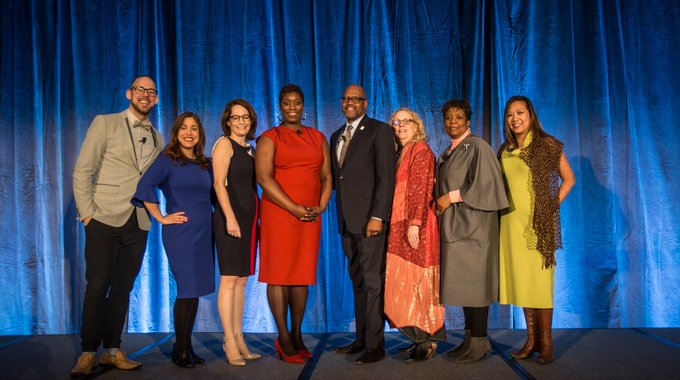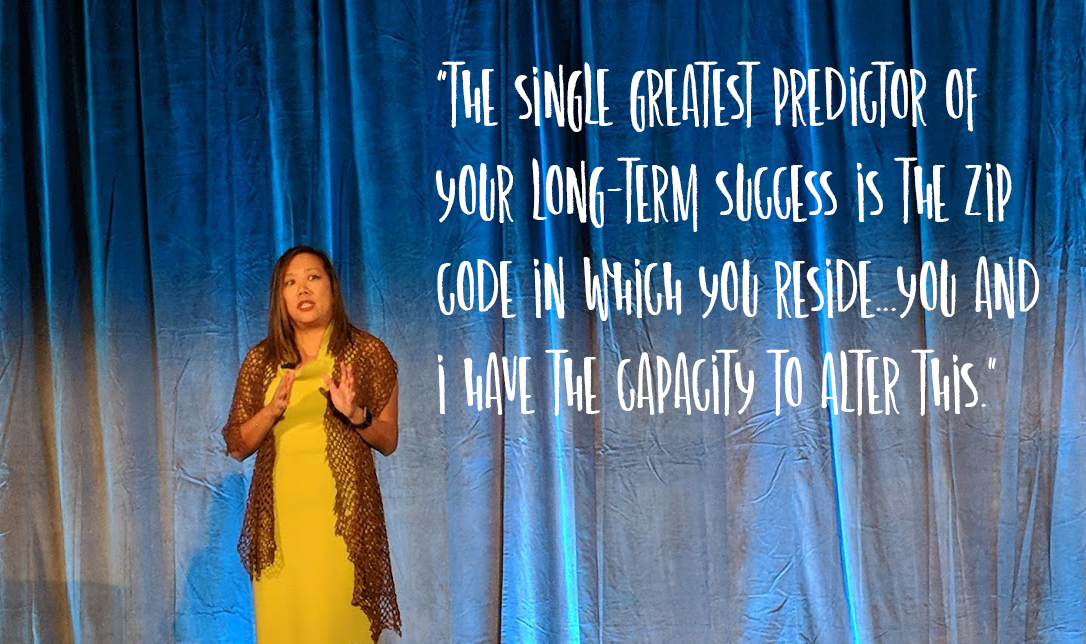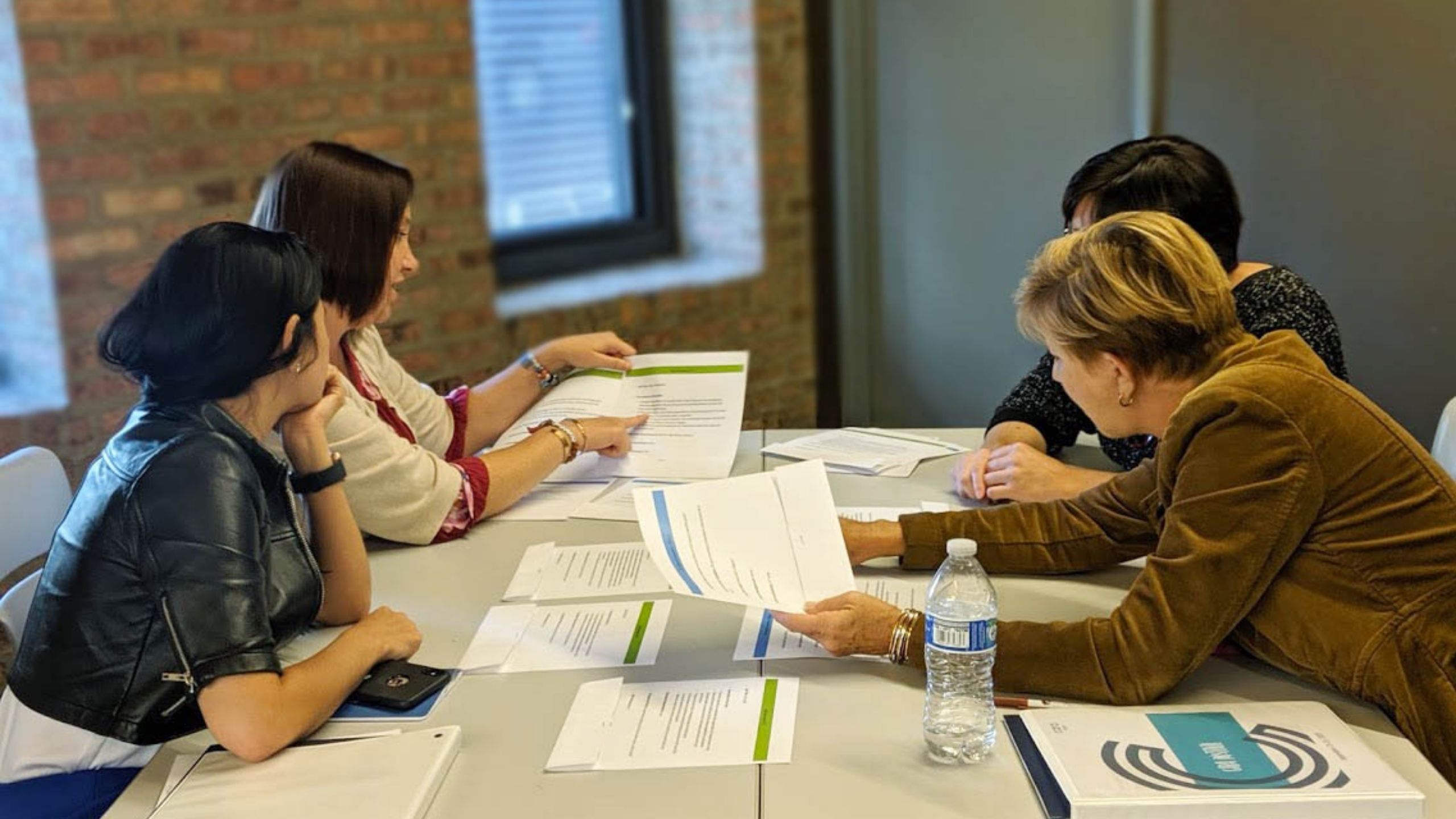You Dream What You See

The following remarks were delivered by Cara President and CEO Maria Kim at the 24th annual Chicago Neighborhood Development Awards.
You dream what you see.
So if you see a neighborhood where families are playing and kids are learning, then you dream you will have and do the same. If you see moms and dads going to work each day, then you dream what, one day, your job will be.
But if you see a community that has liquor stores not grocery stores, or pay day loans not banks, or you’re too afraid to have your baby sister walk to school because of the violence on the streets, then you don’t dream much. Instead of feeling the options are limitless, you feel limited. And if on one of those days, you see young men hanging out in gangs because that is where they find their sense of community and their tribe, then one day you dream that will be me.
Take a guy like Raahsaan, a young man who came to Cara years ago. He was on the straight and narrow until his mom died of cervical cancer when he was just fourteen years old. In an instant, he became the man of the household and felt he needed to support his sister and his three little brothers. He didn’t want to commit a crime, but he didn’t believe other options were available to him to make money. He wanted to be a man, providing for his family.
Raahsaan, if given the opportunity, would run through walls Mr. Koolaid style to get things done. We know this to be true because he’s worked for us for the last decade doing just that.
The single greatest predictor of your long-term success is the zip code in which you reside. Every community health indicator – from unemployment to crime – is disproportionately higher in areas that show the highest index of poverty and disinvestment.
You and I have the capacity to alter this unjust zip code destiny and do what we should have done all along. Help unlock the very genius of our communities – those communities which may not be rich in dollars, but are rich in assets of a greater sort.
We stand arm in arm with community partners dedicated to reinvesting in our neighborhoods and we invite you – as friends in the private sector and beyond – to come on over and be a part of our call to action.

Come on over and intentionally recruit and hire residents of our neighborhoods – not just diverse talent, but diverse talent who reside in the very neighborhoods most affected by poverty.
Come on over and commit to looking beyond the resume when you review talent. Sometimes candidates may not have letters you want in their educational history, but as Year Up would say, they have graduated life and developed a sense of hustle and teamwork and grit and resilience that can be the greatest predictors of success.
Come on over and realize that sometimes people make mistakes – but that what you have done or frankly what has been done to you doesn’t define who you are. Realize the very inequities that bring people to the justice system – like the fact that it’s six to eight times more likely to be convicted of the same crime if you are black or brown than if you are white; and then check yourself for having unnecessarily bright lines that box out candidates with convictions on their record.
Come on over and make room and take time to right skill those candidates with raw talent to now learn the specific skills they need to be uniquely successful in your firm. I know that takes time, but think of the long game and contemplate how much time you spend managing entry-level churn. This is an area where you might want to go slow so that you can go fast.
And if you yourself don’t have jobs, look deep inside your supply chain. Use your influence to have those firms do inclusive hiring themselves. Come on over and make your supply chain a true value chain.
And if your chain has too few links, then invest in a neighborhood business with your time or treasure, and help them to build their capacity to open their doors for hiring.
Do whatever you can, wherever you can, however you can to be an inclusive employer or investor to help us bring people back to work. We in turn will work tirelessly to find you people who will take the same skills to block and tackle poverty every day to the work of blocking and tackling their job.
If you do this, we will badge you as an inclusive employer or investor who believes as we do – that people build community and if we want our city to be all that it is capable of being – full of play and culture and family and economic vibrancy – then we have to find ways to bring all people in.
We have to find ways to make this One Chicago for All. And for each person for whom we do that, imagine what becomes possible for their son or daughter, sister or aunt.
You dream what you see. Help us help those we have the honor to serve to dream big.
Maria Kim is the President and CEO of Cara. She holds an MBA from the Booth School of Business and serves on the boards of the EPIC Academy and Rebuilding Exchange. She fancies herself an expert solver of crimes due to her excessive consumption of “Law and Order” reruns.


